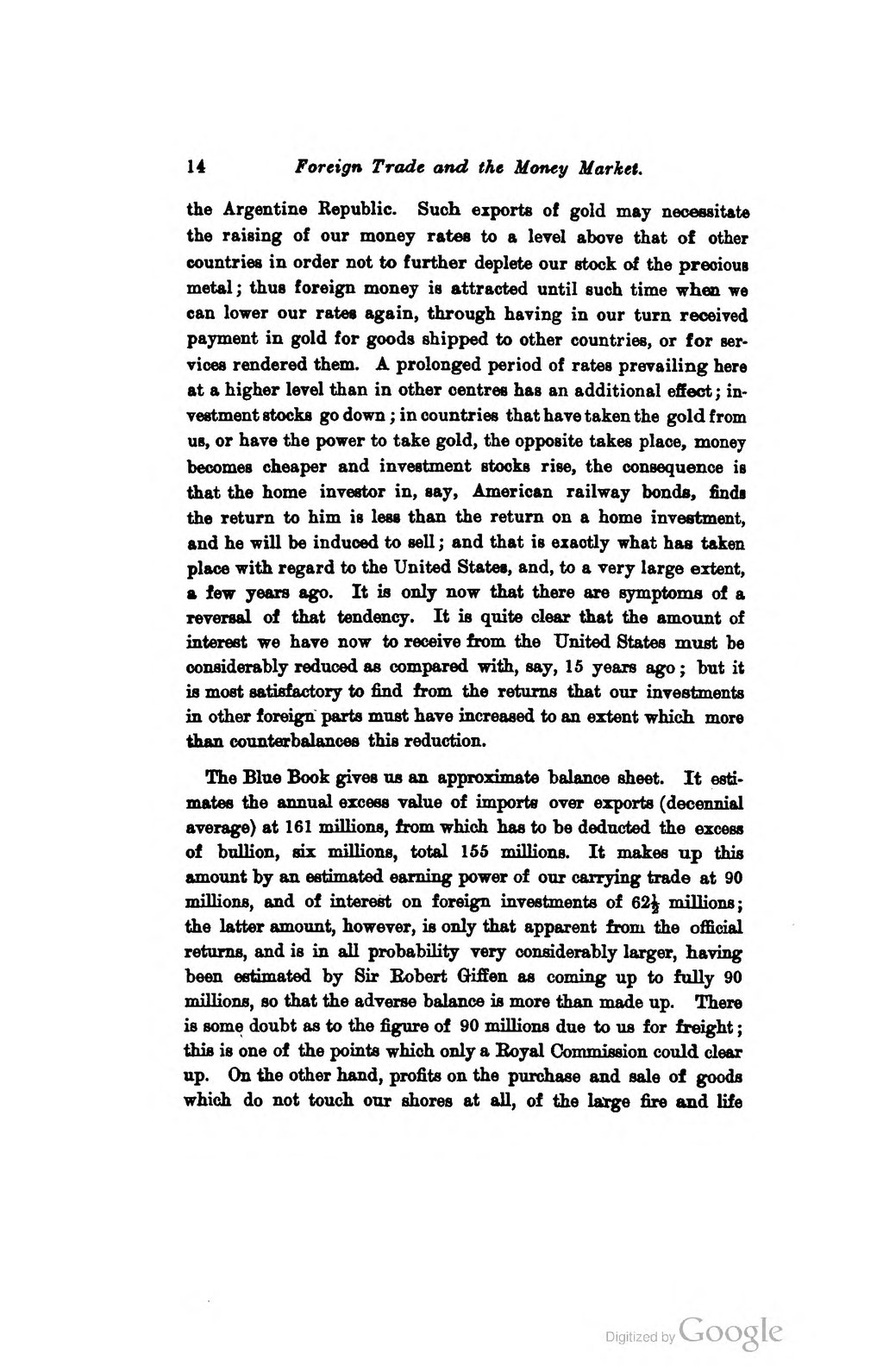the Argentine Republic. Such exports of gold may necessitate the raising of our money rates to a level above that of other countries in order not to further deplete our stock of the precious metal; thus foreign money is attracted until such time when we can lower our rates again, through having in our turn received payment in gold for goods shipped to other countries, or for services rendered them. A prolonged period of rates prevailing here at a higher level than in other centres has an additional effect; investment stocks go down; in countries that have taken the gold from us, or have the power to take gold, the opposite takes place, money becomes cheaper and investment stocks rise, the consequence is that the home investor in, say, American railway bonds, finds the return to him is less than the return on a home investment, and he will be induced to sell; and that is exactly what has taken place with regard to the United States, and, to a very large extent, a few years ago. It is only now that there are symptoms of a reversal of that tendency. It is quite clear that the amount of interest we have now to receive from the United States must be considerably reduced as compared with, say, 15 years ago; but it is most satisfactory to find from the returns that our investments in other foreign parts must have increased to an extent which more than counterbalances this reduction.
The Blue Book gives us an approximate balance sheet. It estimates the annual excess value of imports over exports (decennial average) at 161 millions, from which has to be deducted the excess of bullion, six millions, total 155 millions. It makes up this amount by an estimated earning power of our carrying trade at 90 millions, and of interest on foreign investments of 62½ millions; the latter amount, however, is only that apparent from the official returns, and is in all probability very considerably larger, having been estimated by Sir Robert Giffen as coming up to fully 90 millions, so that the adverse balance is more than made up. There is some doubt as to the figure of 90 millions due to us for freight; this is one of the points which only a Royal Commission could clear up. On the other hand, profits on the purchase and sale of goods which do not touch our shores at all, of the large fire and life
